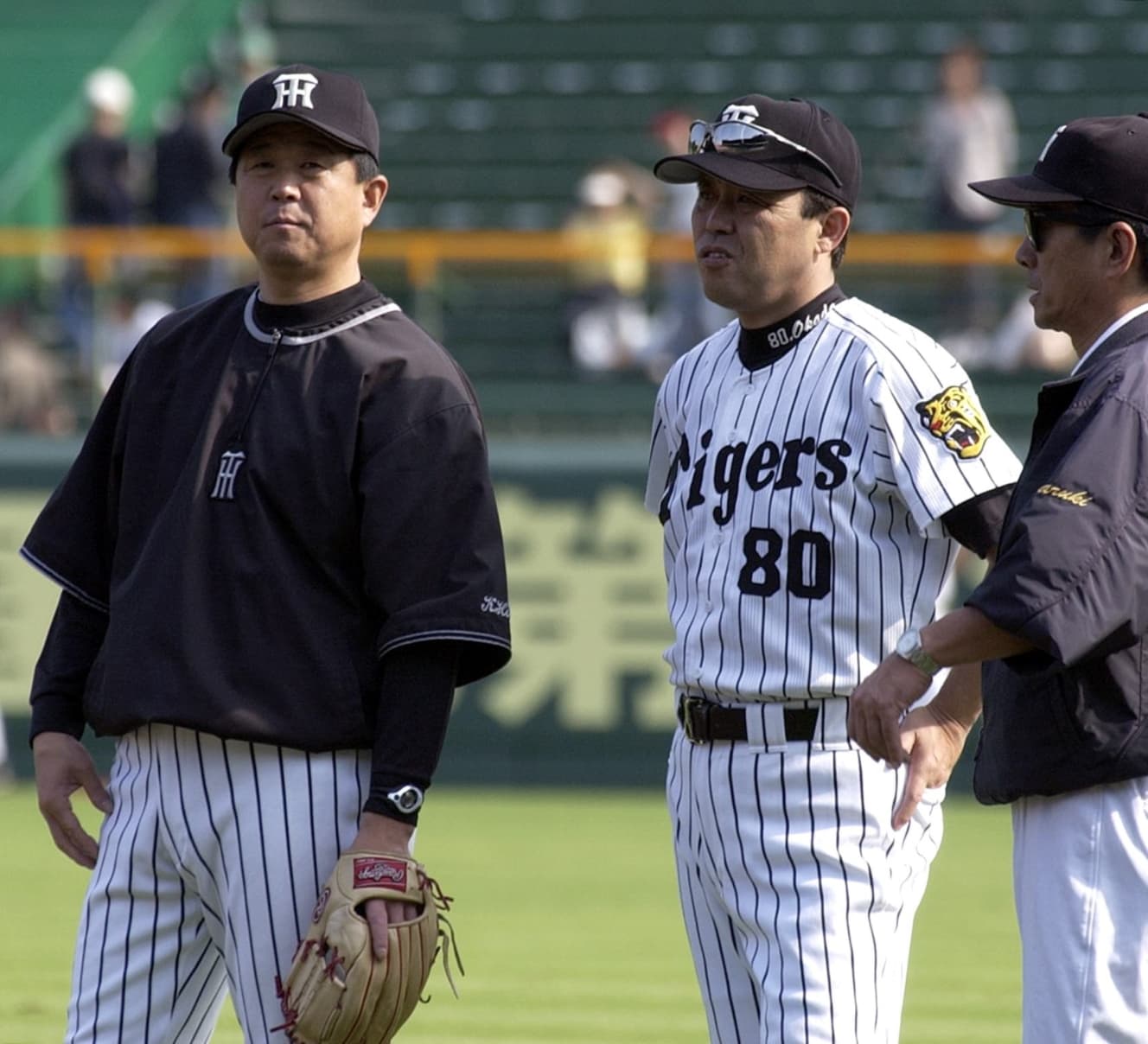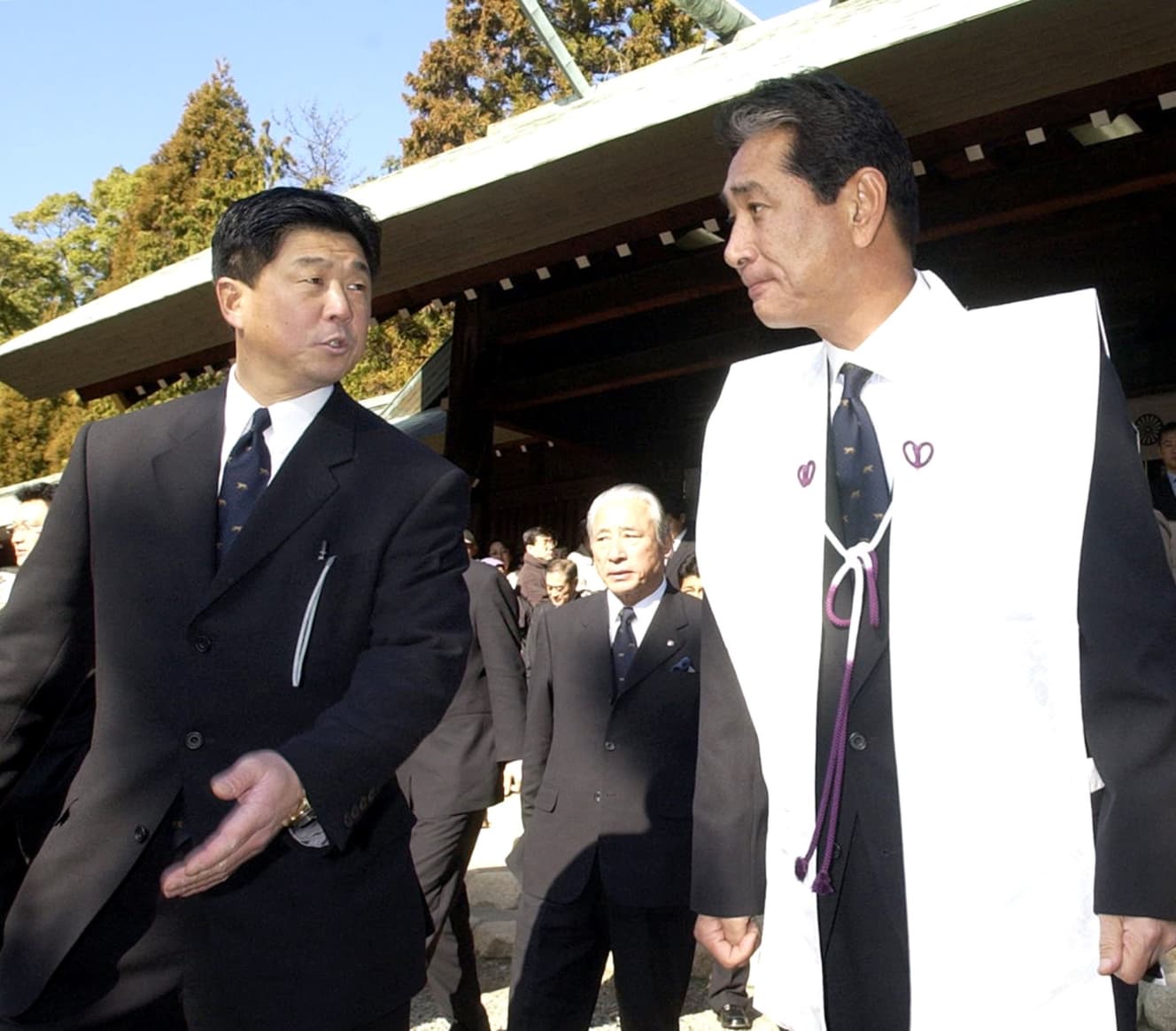Hanshin’s new manager, Akifumi Okada, is confirmed. Why “Katsuo Hirata,” who was the most promising manager, disappeared?
In the Central League of professional baseball, Hanshin, the team that defeated DeNA in the Climax Series (CS), is engaged in a fierce battle with Yakult in the final stage for a place in the Japan Series. The moment Hanshin loses, the regime of manager Akihiro Yano, 53, who announced his retirement at the end of the season on January 31, the day before this year’s spring training camp began, will come to an end, and former manager Akifu Okada, 64, who has been tentatively selected as the next manager, will quickly take over again.
The Hanshin baseball team had been united under the “new manager Hirata,” but ……
The unprecedented move to announce his resignation on the day before camp backfired on the Hanshin team, which suffered an unprecedented nine consecutive losses to start the season, the worst record in the history of the league and professional baseball. Okada, who was entrusted with rebuilding the team, was in charge from 2004 to 2008, and is a former leader who led the Hanshin team to its last league championship in 2005, 22 years after the team’s inception.
In May, he played golf with Kazuo Kado, 73, chairman of Hankyu Hanshin Holdings, which is also the general manager of the parent company group. It was reported that he offered a plan to rebuild the team for the next season, which at the time was languishing in the bottom of the standings. Kaku and Okada, both graduates of Waseda University, are friends and have long expressed a desire to rejoin the team. It looked as if the deal would go smoothly, but that was not the case at Hanshin, where the slapstick surrounding the appointment of a new manager has become a bone of contention. It is true that Mr. Okada was not the favorite of Hanshin Electric Railway.
At first, Katsuo Hirata, 63, was thought to be the 35th manager of the Hanshin team. A Hanshin reporter said, “As of early September, Hanshin Electric Railway and the baseball team were united in favor of Mr. Hirata. The rest was up to the stage of getting Chairman Kado’s approval, but he didn’t bud ge.
Hirata, who will take charge of the second team in 2019, is known as a four-time Golden Glove Award-winning defender and a member of the 1985 Japan championship team. In 2002, when Senichi Hoshino, a senior player at Meiji University, was appointed manager, he moved from being a coach to being the manager’s personal publicist and chauffeur. In 2004, he became the head coach of the first team under Okada, who took over from Hoshino, and from 2006 until his retirement in the fall of 2010, he served as the manager of the second team. Under the new Okada administration, he has been unofficially confirmed as the head coach of the first team. A sports newspaper reporter commented, “The team’s resistance can be seen in the fact that he was left on the bench as second in the lineup.
The same reporter commented, “When the team invited Mr. Hoshino to become manager, it is clear that they saw Mr. Hirata as one of the candidates for the future management of the team. As a leader, he is also familiar with Kansai’s unique media culture. He has no shortage of experience, and is a true front-runner. That is not the only reason why the baseball team wanted to promote Okada.
One of the reasons the team did not want Okada to be reappointed to the board is because of the trauma of the previous administration. Around 2005, when Okada took over, the league was dominated by managers such as Tatsunori Hara of the Giants and Hiromitsu Ochiai, who had full control of the team, including organizing authority and public relations. Okada was no different.
Okada, like Hoshino, had a say in front-office reinforcements, and he was also a strong advocate of “budgets can be managed at any time, and the opinions of the field should come first. His attitude that the opinions of the front office should be given top priority was resented by the team’s front office,” said the same reporter.
They said, ‘We may be able to win, but it will cost a lot of money. In 2008, Okada resigned, taking responsibility for the team’s 13-game lead over second place at one point and then losing the championship. He resigned in 2008, taking responsibility for the Orix’s 13-game lead over second place at one point and then losing the championship. On September 16, the team’s owner, Takaoki Fujiwara (70, Chairman of Hanshin Electric Railway), met with Chairman Kaku and made a final decision.
The reporter said, “It seems that Fujiwara persisted until the very last minute, but Chairman Kaku’s will was stronger.

Mr. Hirata is a man of diverse experience, having even worked in public relations. He was preferred over Mr. Okada in terms of ease of control by the team’s front office, but he made the decision to seek victory even if it meant turning back the hands of the clock. Hanshin and Hankyu teams were established in 1935 and 1936, respectively, before the war. Although both have a long history, Hanshin’s popularity and name recognition in the professional baseball world was outstanding compared to Hankyu. However, the situation was “reversed” in 2006 when Hankyu Holdings, Inc. acquired shares in Hanshin Electric Railway and took control of the company.
In fact, when former manager Tomonori Kanemoto took over in 2015 and was replaced by Yano in 2018, the Hanshin baseball team’s policy was to continue with Kanemoto until mid-season. However, the parent company Hankyu, perhaps influenced by the fact that the team finished at the bottom of the table that year, said “No” and Yano, who had been the manager of the second team, took over as manager. In other words, the Hankyu side has a greater say in personnel matters.
However, Hirata, who was not the frontrunner for the post, was also relegated to the role of general counsel to the first army manager, thus ending the “dark struggle.
The Hanshin journalists were aware of this background, but the newspapers were stuck with a line from the public relations person in charge to the representative managing companies, telling them that they would be banned if they wrote anything about the personnel.
The line was titled “Request for Cooperation in Reporting,” and it said that even after the possibility of winning the championship was gone, as long as there was a chance of advancing to the CS, they should refrain from reporting on manager and coach personnel matters. It said, “If you do not respond to the team’s request for cooperation, we will not provide any media cooperation for an indefinite period.” As examples, it said, “We will stop distributing information from the team (press releases, secretary contact, etc.),” “No team-related coverage (no representative interviews, participation in press conferences, etc.),” and “No interviews, no cooperation in events, etc.” The article went on to say, “If we report on the personnel changes, it will be a fact. In other words, if they reported on personnel matters, they would be banned from the office, even if the information was true. Since they could not freely interview the persons concerned under Corona, the sports newspapers could not write about it even if they wanted to, because it would be a matter of life and death,” said the aforementioned journalist.
However, the restriction became a dead letter when Sankei Shimbun and Sankei Sports reported “New Director Okada” on the front page of their September 27 editions. The newspapers also began to report on the backstage of the game.
Hanshin has beaten second-place DeNA in the first stage of the CS, but is struggling against Yakult, which has shown the difference in strength between the two teams. I think this is due in no small part to the narrow-mindedness of the baseball team, which does not even allow “freedom of the press” regarding the departure of managers and players. ……

